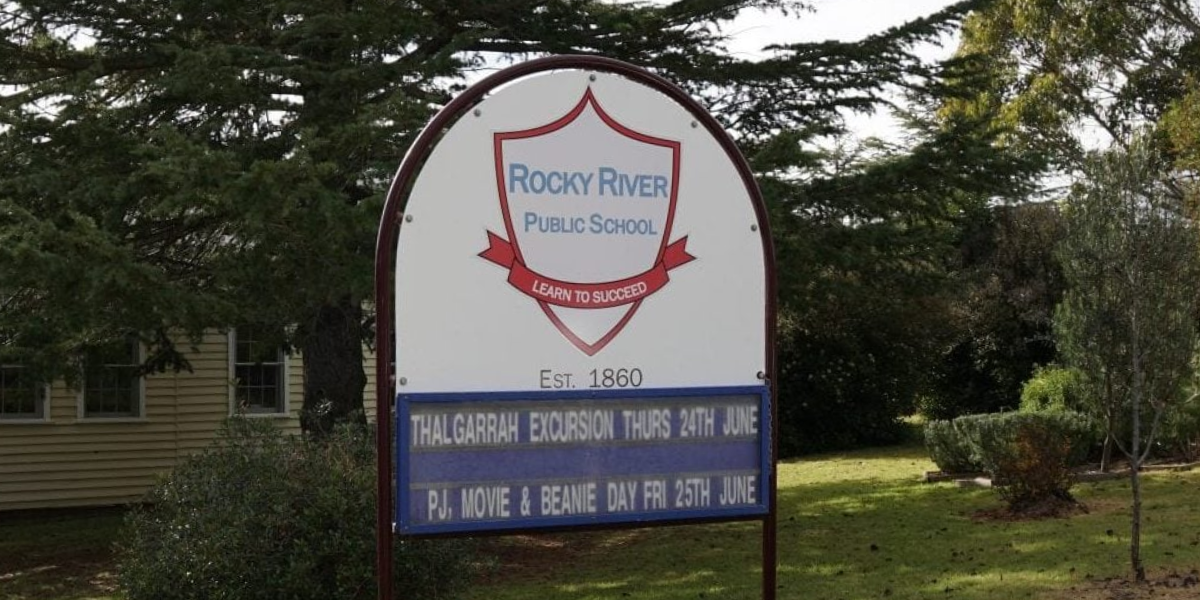Today is the start of Education Week, an annual celebration of NSW public education and the achievements of the schools, teachers and students who are part of the public education system.
2023 marks the 175 years since the introduction of a public school system in NSW. Prior to 1848, education was principally the responsibility of the churches, and was a user-pay system. A severe economic depression during the 1840’s resulted in less than half of NSW school-aged children receiving any formal education. As a result, the National Education Board was established to set up a state-run public education system which was modelled from the successful Irish National System.
The intent was not to replace the existing denominational system, rather to establish new publicly-accessible schools where there was a need and where no other schooling option was available. The aim of a National School was ‘to teach children to read and write, and to cast accounts’, without interfering with their religious faith. To establish a public school required a great commitment by the community, having to contribute to the initial setup costs and subsidise the Schoolmaster’s wage to attract a suitable candidate to the position.
The small community of Rocky River saw the establishment of the first National School in the area in 1860, a fact the village is very proud of. The growing community understood the importance of establishing a school to stabilise the community by providing a reason for families to settle and develop the village into a desirable township. The community purchased an unused building, the Bank of New South Wales, dismantled the structure, transported and rebuilt the building as their schoolhouse onsite at Mount Jones. The school building has undergone many renovations and repairs since, but still sits in the vicinity of the original site.
As the system developed over time, more life skills were introduced. An innovative learning opportunity, ‘The Junior Farmers Club’, became very popular in rural and regional schools, including Rocky River. The students of Rocky River were very avid Junior Farmers, proudly selling their produce in the local co-op, as well as offering support to the Armidale Hospital Auxiliary.
A story in the Uralla Times published on March 4, 1937 says ‘Miss Grant (Hospital Auxiliary Organiser) stated she had visited the Rocky River Public School, where she had found the children keen, and it was proposed to hold a hospital day once a month’. Produce was collected by the Hospital Auxiliary to be used to subsidise the cost of food.
Environmental initiatives were also incorporated into the education system. To celebrate the Coronation of King George VI in 1937, Rocky River, like many other schools, held a Coronation Arbor Day ceremony.
‘The Headmaster, Mr Lickiss, addressed the students on the meaning and value of Arbor Day, stressing five main points including: planting trees for beautification; to arrest the serious problem of soil erosion; as a protection for bird life: for shade and wind-breaks for stock; and timber wealth for future generations,’ reported The Uralla Times on the 16th August 1937.
While many rural schools already had established Junior Farmer plots, ‘many children (were) anxious to enrol in the ‘Childrens Garden Army’ in an effort to help the vegetable production drive as requested by the Federal Government,’ to assist in the war effort (The Uralla Times, 26th August 1943).
Things have come a long way since then, and in the current learning environment, access to technology is crucial. There is a strong focus on how to use Information and Communication Technology (ICT) and digital skills effectively and appropriately, while life skills have always been an intrinsic part of the education system.
Current Principal of Rocky River Public School, Mr Brad Hunt, said ICT is embedded throughout all aspects of teaching.
“In our changing world, it is essential that our students have the skills to use and develop technological systems and devices.”
“Our goal is to provide our students with the problem-solving skills necessary to use systems and programs effectively.”
“The students at our school are very lucky. Every student has their own laptop for school use and ICT is embedded throughout all aspects of our teaching and learning programs”.
“Rocky River Public School is an outstanding school. Our quality literacy and numeracy programs and strong wellbeing approach provide an optimal learning environment for our students,” Mr Hunt said.
As a school which has grown with the public education system, Rocky River Public School has an extraordinary history. Despite its small size, but with the strong support of the community, its families, and committed teaching and support staff, Rocky River Public school is in a strong position to continue to develop ‘agile thinkers’ into the future.
Like what you’re reading? Support The New England Times by making a small donation today and help us keep delivering local news paywall-free. Donate now

